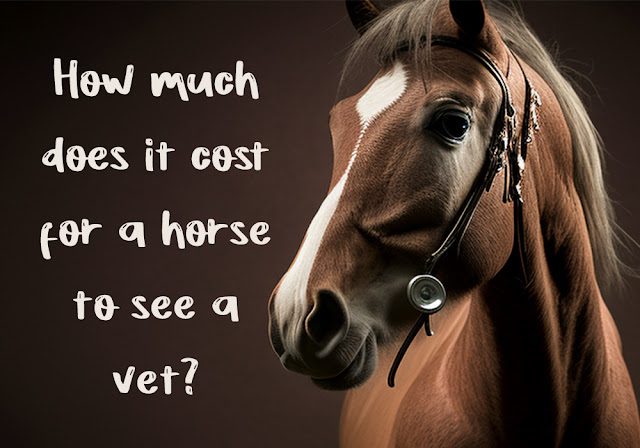The cost of taking a horse to see a veterinarian can vary widely depending on a number of factors, including the type of treatment or procedure being performed, the location of the practice, and the experience and qualifications of the vet. In general, routine check-ups and preventative care for horses can cost anywhere from $100 to $400 or more, depending on the specific services being provided. More specialized procedures or treatments, such as surgery or diagnostic testing, can cost significantly more, with prices ranging from several hundred to several thousand dollars.
It’s important to keep in mind that the cost of veterinary care for horses can vary widely depending on the specific needs of the animal and the type of treatment being performed. It’s always a good idea to discuss the cost of treatment with your veterinarian in advance and to factor this cost into your overall budget for horse care. It’s also a good idea to consider purchasing equine insurance to help cover the cost of unexpected veterinary bills.
There are several other factors that can affect the cost of veterinary care for horses. For example:
Travel fees: If the veterinarian has to travel a long distance to see your horse, they may charge a travel fee in addition to their regular fees.
Emergency care: If your horse requires emergency care outside of regular business hours, you may be charged additional fees for after-hours service.
Medications and supplies: The cost of medications and supplies, such as bandages and dressings, may be added to the overall cost of treatment.
Follow-up care: If your horse requires follow-up care or rehabilitation, you may be charged additional fees for these services.
It’s always a good idea to discuss the cost of treatment with your veterinarian in advance and to factor this cost into your overall budget for horse care. If you’re concerned about the cost of veterinary care for your horse, you may want to consider purchasing equine insurance to help cover the cost of unexpected veterinary bills.
Here are a few more things to consider when it comes to the cost of veterinary care for horses:
Pre-purchase exams: If you’re considering purchasing a horse, you may want to have the animal examined by a veterinarian as part of the purchase process. This type of exam, known as a pre-purchase exam, can help identify any underlying health issues that might affect the horse’s value or suitability as a riding or working animal. Pre-purchase exams can cost anywhere from several hundred to several thousand dollars, depending on the extent of the examination and any additional testing that is done.
Annual exams: It’s generally a good idea to have your horse examined by a veterinarian at least once per year, even if they seem to be in good health. Annual exams can help catch any potential health issues early on and can help prevent more serious (and more costly) problems from developing.
Preventative care: Investing in preventative care for your horse can help prevent health issues from developing in the first place. This can include things like regular vaccinations, dental care, and hoof care, as well as a balanced diet and regular exercise. Taking care of your horse’s basic needs can help reduce the likelihood of costly health issues down the road.
Here are a few more tips for managing the cost of veterinary care for your horse:
Shop around: It’s a good idea to shop around and get quotes from several different veterinarians before making a decision. This can help you get a sense of the going rate for different types of care and can help you find the best value for your money.
Negotiate payment plans: If you’re unable to pay for veterinary care upfront, you may be able to negotiate a payment plan with your veterinarian. This can help you spread the cost of care out over time and make it more manageable.
Look into discounts: Some veterinarians offer discounts for things like multiple-horse households or for repeat customers. It’s worth asking if there are any discounts available that might help reduce the cost of care.
Consider purchasing equine insurance: Equine insurance can help cover the cost of unexpected veterinary bills and can provide peace of mind knowing that you have a financial safety net in case of an emergency.
By following these tips, you can help ensure that your horse receives the care it needs without breaking the bank.
